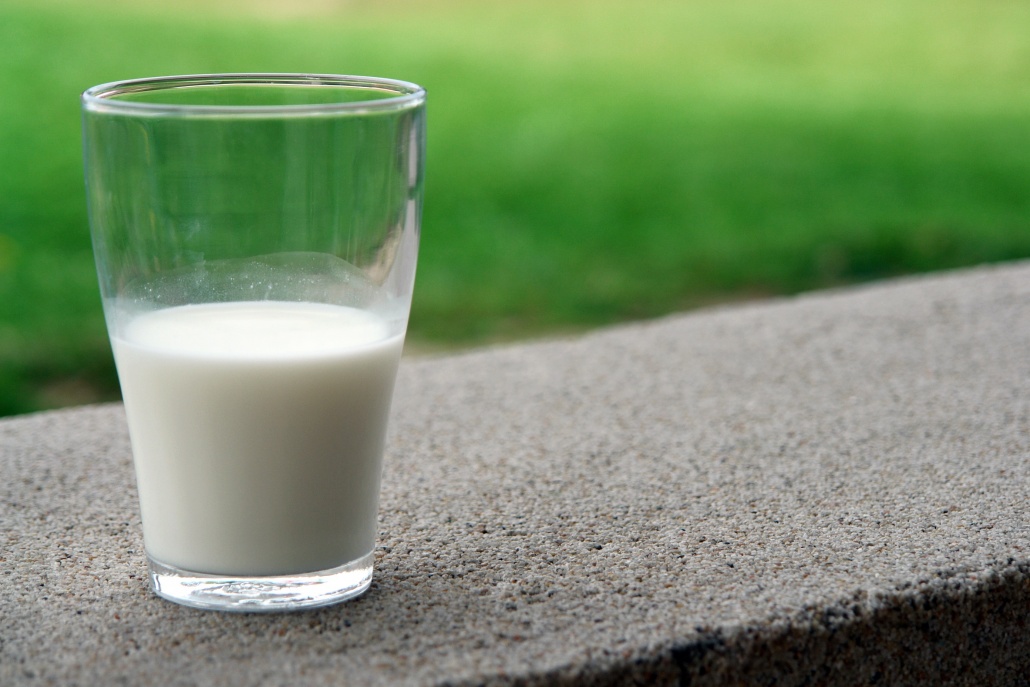Should You Really Avoid Eating Dairy?
Going vegan, paleo, and gluten-free have been hot topics, and recently, dairy-free has become common, too. Is it just a fad, or should you really clean your diet of dairy products to optimize your health in the long-run?
Bloating, stomach pain, diarrhea, indigestion, eczema, loud gurgling in your stomach, are all common side effects of dairy intolerance. I’ve put clients- and close friends too– on a short cleanse free of dairy, and after adding it back in, observed their side effects after all meals closely. We then recognized the role dairy played in their discomfort, and eliminated it without deprivation of consuming delicious food. Dairy in and of itself is not unhealthy. If you have no intolerances or allergies, you should not eliminate it from your diet. Instead, seek organic and grass-fed options to boost your nutritional intake greatly. Dairy is high in protein and calcium and has a myriad of health benefits, when it is in its organic form without all the added hormones. Those who are a fan of raw milk know that it contains a ton of health benefits, including but not limited to: decreasing your risk of allergies, ease in digestion, calcium, protein, vitamin D, and healthy fats. Natural dairy products like butter, milk and cheese are high in healthy fats, which is great for cognitive health and grants you satiety.
Another controversial issue with dairy is the obsession with fat-free. Fat-free yogurt, fat-free cheese and fat-free milk have become so prevalent, that you might be considered a black swan if you purchase whole milk. But in fact, holistic doctors and nutritionists are advising that you should only purchase full-fat dairy products. When you buy fat-free yogurt, you are essentially getting the product that is more processed- since they remove the fat content. Majority of the time, companies also add sugar, additives and preservatives to preserve the product and make up for the fat that has been removed. Eradicating the fat changes the texture and taste of the product, thus in order to make the product appealing to consumers, they must make up for it in other ways. Look for grass-fed cheese, organic grass-fed whole milk and organic full-fat yogurts to add to your diet. Not only will you get to enjoy the scrumptious taste of real cheese and milk, you will be providing your body with a food closer to nature. As those who have tried both fat-free and full-fat all know, you cannot compare the taste of fat-free cheese with organic full-fat cheese, that melts in your mouth with every bite.
Don’t obsess with the calories and notion of “but it has more fat” because firstly, as I’ve mentioned, the full-fat version will provide you with satiety. Due to the healthy fat content in dairy, your body will not crave more after. Moreover, when you begin obsessing with calories, you are overlooking a more essential concern: chemicals. If removing the fat from yogurt means adding dextrose or other additives to make up for the taste, what good are you doing for your body? I always remind my clients to focus on counting chemicals, not calories.
In my next column, I will share several unique yet successful tips for those who suspect they may be intolerant to dairy. Stay tuned; for now, aim to purchase your dairy products organic and full-fat.
Noor Hani Salem is an author, speaker, and Certified Integrative Nutrition Health Coach, from Michigan. Noor works with clients in better understanding their bodies and healing with natural foods through her wellness practice, Holistic Noortrition. She presents various workshops, school lectures, group coaching classes, and community lectures on the topic of holistic health. Noor recently published her book, SUNNAH SUPERFOODS, a culmination of life-changing recipes and remedies, with a foreword by Dr. Waleed Basyouni. Her book consists of prophetic hadith, modern research, and delicious recipes, and is in the process of being translated into other languages.

















2017
1,163 views
views
0
comments